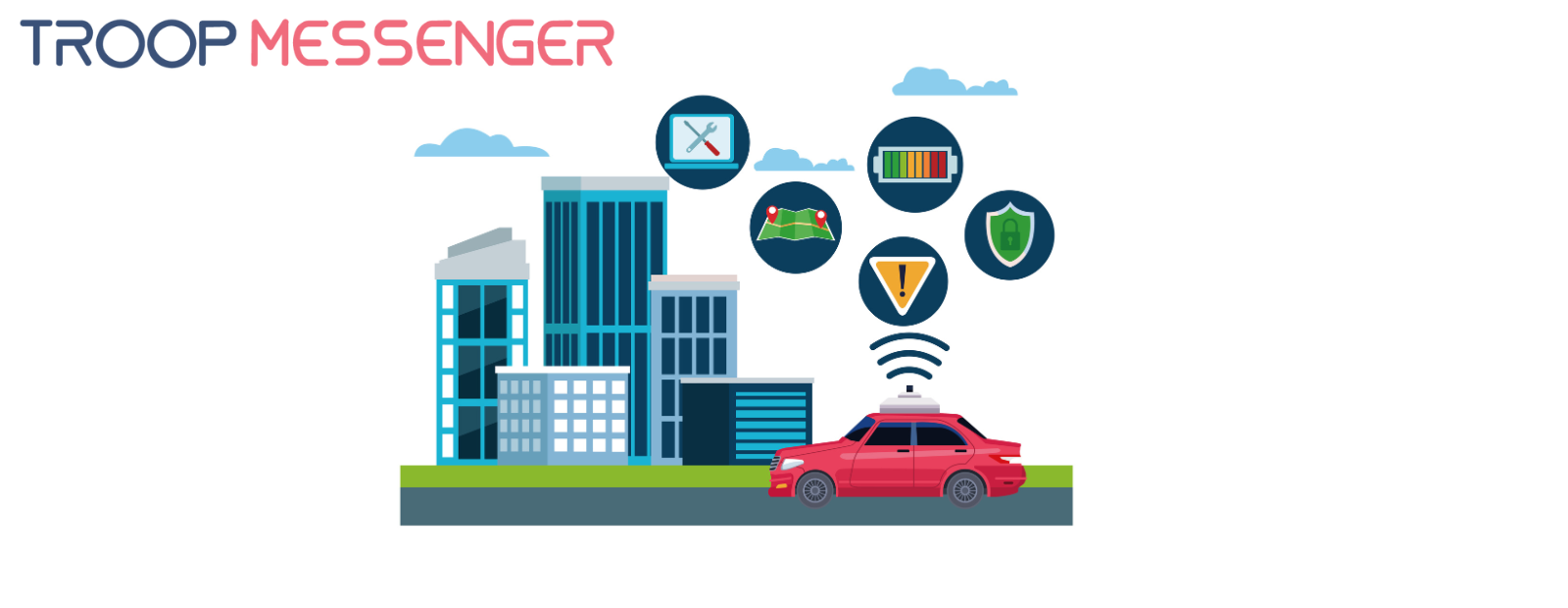Connect with us

Providing Safety: The Imperative of Implementing Business Security Measures
Given that practically everyone we know, including ourselves, is creating an online presence or is just conducting business online, it is not unusual to be observant about potential threats and suspicious activity in the current generation.
Although it should not be shocking, it can be unsettling if you are unable to guarantee the safety of your business or even recognize the warning signs. For this reason, it is always advisable to be on the lookout, keep up with the trends, or just be inquisitive and want to learn more about this topic. Fraud is a significant risk that modern businesses must deal with, and it emphasizes how important it is for them to have adequate security measures in place.
Well, let us examine our options and the reasons behind them as we protect our valuable companies!
Protecting assets and staying in sync with regulations
Due to their critical role in protecting valuable assets, businesses must ensure that their fraud security measures are strong. Together with cash, supplies, and machinery, these assets also include both material and immaterial items, such as customer data and intellectual property.
These priceless assets run the risk of being stolen or misused by scammers when proper security measures are not in place. This could, consequently, cause serious financial difficulties for your company and damage its reputation.
Keeping up with legal requirements and guidelines is an essential part of running a business. These requirements cover areas like consumer rights and data protection. If the company violates these rules, they could be subject to harsh fines or legal action.
Your company can protect itself from possible fraudulent activity and guarantee compliance with relevant regulations by putting in place robust fraud security measures. For example, consider the Payment Card Industry Data Security Standards (PCI DSS), which require particular security protocols for companies that accept credit card payments to protect client information.
The best way to protect your company from credit card fraud is to follow security best practices for your cards. If you want a business account that will let you issue employee cards (compare free business credit cards here), look for card providers and banks that offer the highest level of protection against fraud and misuse by employees.
Many issuers offer built-in fraud and theft monitoring services intended to shield accountholders from unauthorized usage. However, these protections typically mandate prompt reporting of any suspicious activity, often within 24 hours of detection, to qualify for coverage of fraudulent transactions.
Thus, these actions not only guard against fraud but also serve as a proactive way for your business to comply with legal requirements and avoid potential legal repercussions.
Balancing customer trust with the right moves
Consumers are more inclined to do business with organizations they trust as they become more conscious of privacy and security threats. Strong fraud security procedures help to establish and preserve trust by demonstrating to potential customers that a business takes the security of their personal information seriously.
By guaranteeing transparency and exhibiting reliability, one can reduce disturbances, maintain a favorable image of their brand, and educate and empower clients.
This is the cornerstone of trust, which is essential for long-lasting client relationships.
Businesses that are trustworthy enough to take cybersecurity precautions not only win over more customers but also act as a buffer against big financial losses. Fraud can lead to direct monetary theft and indirect costs like legal fees, regulatory fines, and damage control expenses.
Hence, companies can spare themselves and their clients from expensive repercussions by identifying and stopping fraud before it happens
System for detecting suspicious activity
To remain relevant in today's modern and dynamic business environment, strong monitoring systems must be implemented. By being strategic and integrating cutting-edge tools such as fraud prevention tools, log management software, and antivirus systems, businesses can reinforce their digital ramparts.
- By actively monitoring transactions and user activity and spotting patterns or anomalies that might point to fraudulent activity, fraud prevention technologies can provide you with real-time monitoring. By using sophisticated algorithms, fraud prevention tools examine user behavior and identify deviations from typical patterns, adding an extra degree of security.
- Log management tools enable organizations to track anomalies, trace the sequence of activities, and look into security incidents by recording and storing an extensive history of events within a network. By providing thorough reports on user activity, these tools help businesses comply with industry-specific compliance standards and help them meet regulatory requirements.
- Antivirus software quickly identifies and eliminates possible threats before they have a chance to compromise the system by scanning files and applications for patterns of known malicious code. Antivirus programs operate continuously in the background to offer real-time defense against viruses, trojans, and other malware. This proactive approach ensures a strong defense against constantly changing cyber threats
Frequent examination of the data produced by these instruments serves as a watchful defender, promptly detecting any irregularities or possible weaknesses within your system. Whether preventing unauthorized access attempts or identifying questionable activity, these fraud detection tools are invaluable partners that guarantee the resilience and security necessary for long-term company success.
The secret to success is to fully embrace the protective power of proactivity.
Exploring business frauds and their diverse forms
Business fraud can be dangerous for companies of all sizes and in all sectors of the economy because it involves dishonesty, deception, or misrepresentation for monetary benefit. Fraud is estimated to cost businesses 5% of their annual revenue, according to the Association of Certified Fraud Examiners (ACFE), underscoring the significance of fraud to an organization's capacity for financial success.
Business fraud comes in a variety of forms, which include:
- Internal fraud: committed by staff members or other individuals within the organization, this kind entails gaining access to private data or assets. Payroll fraud, inventory theft, false expense claims, and embezzlement are a few examples.
- External fraud: This type of fraud is committed by individuals outside of the company and includes identity theft, credit card scams, phishing schemes, and cyber-attacks.
- Financial statement fraud: also known as "cooking the books," entails manipulating income and balance statements to mislead creditors or investors.
- Scams involving investments: these dishonest investment opportunities promise large returns but fall short of delivery, leaving victims with large losses.
- Bribery and corruption: these occur when someone gives or receives expensive goods in an attempt to influence a decision that is not in the best interests of the people they are representing.
Through an understanding of the complex and multifarious aspects of business fraud, companies can strengthen their defenses against potential threats and strive to preserve a safe and stable operating environment.
Don’t forget about strong password policies!
Cybercriminals frequently use data breaches or weak passwords to their advantage to obtain malicious access. Implementing strict password policies within your organization is essential to fending off these attacks.
Given that complexity is the key, urge staff members to create passwords that contain a combination of capital and lowercase letters, numbers, and special symbols and are at least 12 characters long. Because of its increased level of detail, the password is stronger and more resilient to brute-force attacks.
Encourage the creation of original combinations and discourage the use of information that can be guessed easily, such as birthdays or well-known words. Passwords that are reused across multiple accounts should be avoided. You are lowering the risk of compromise if one account is compromised.
This strengthens your defenses against potential breaches and creates a solid barrier that shields your confidential information from the prying eyes of cyber adversaries.
Employee background checks are vital
Making sure a new hire is trustworthy is important because they will be entrusted with sensitive data and company resources. Numerous checks, such as credit, employment verification, and criminal history checks, customize the screening procedure to meet industry-specific requirements.
Criminal background checks reveal possible fraud risks, particularly in positions involving sensitive data. Credit checks provide information about financial responsibility, which is important for jobs involving money.
Verifying an employee's employment status protects the integrity of your hiring process, assures resume accuracy, and stops deception. Businesses can strengthen their defenses and create a safe and reliable work environment by implementing these checks.
Conclusion
The first step in the journey is raising awareness of various forms of fraud, such as identity theft and phishing emails. Equipping staff members with this information helps them recognize warning signs and take appropriate action.
The importance of data protection education cannot be overstated, as it highlights the need to handle sensitive data with care and the wider consequences of a breach on the company's image and customer confidence. Their defensive capabilities are further strengthened by promoting multi-factor authentication and teaching good password management.
Phishing attack simulations prove to be a useful instrument for evaluating staff members' reactions and honing their detection skills for possible fraudulent activities. Utilizing these educational programs, companies strengthen their defenses while also developing a proactive and watchful culture—two qualities that are vital in the fast-paced world of today.
Investing in the future of your company means having faith in strong tools, fostering a culture of ongoing fraud education, and having complete faith in the diligence and moral character of your staff. Together, these three elements support stability as well as a strong legacy of achievement and resiliency.








